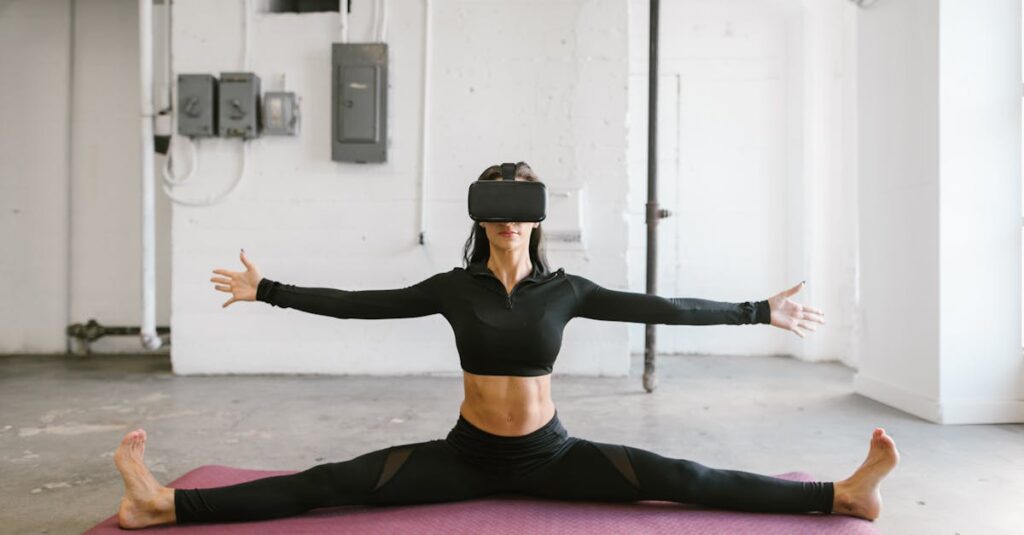Introduction: The Future of Mental Health Care is Here
We’ve all heard the buzz: Artificial Intelligence (AI) is changing industries, from finance to healthcare. But there’s one area where AI’s impact is especially personal, and perhaps even life-changing, mental health care. If you’ve ever felt hesitant about reaching out for support, or struggled with finding the right therapist, AI is stepping in to bridge that gap. But how exactly is this happening? And is it really working? Let’s explore how AI is transforming mental health care, and what that means for you and millions of others.
The Rise of AI-Powered Therapy Tools
Imagine you’re having a rough day, stress at work, feeling overwhelmed, maybe even a bit isolated. You reach for your phone and open an app. No, not Instagram or Twitter, but an AI-powered therapy platform like Woebot or Wysa. These apps use natural language processing to engage with you like a real person, offering conversational therapy that’s accessible 24/7. They’re not meant to replace human therapists, but they can offer immediate relief when you need it the most.
Take Woebot, for example. This chatbot isn’t just designed to chat; it uses Cognitive Behavioral Therapy (CBT) techniques to help you identify negative thinking patterns and suggest coping strategies. It’s like having a therapist in your pocket, minus the expensive hourly rates. People who’ve used it report feeling a little better after just a few conversations, which shows that even short, AI-driven interactions can make a difference.
Why It Works
The success of these tools boils down to a few things. First, they’re convenient. People often don’t seek help because they’re too busy or anxious about talking to someone face-to-face. AI-driven platforms remove that barrier. Second, they’re available anytime, anywhere. Whether you’re at home, in a coffee shop, or lying in bed at 3 a.m., AI therapy tools are ready to listen and respond. Third, they provide a sense of privacy and anonymity, which can be a huge relief for individuals hesitant to open up about their feelings in a traditional therapy setting.
AI’s Role in Diagnosing and Treating Mental Health Conditions
While apps like Woebot provide support, AI is also being used behind the scenes to diagnose and treat mental health conditions. AI algorithms are trained to analyze patterns in behavior, speech, and even facial expressions, making it easier for doctors to spot early signs of mental health disorders.
For instance, AI-powered systems like those used in depression screenings can detect subtle linguistic changes in a person’s speech. When a patient talks about their feelings, AI can analyze the tone, word choice, and sentence structure to identify depressive tendencies that might otherwise go unnoticed. This technology is still in its early stages, but it shows a lot of promise. In the future, AI could play a pivotal role in diagnosing conditions like anxiety, depression, and even PTSD, allowing for earlier intervention and more personalized treatment.
Improving Access to Care
AI isn’t just about making therapy more accessible, it’s also helping to improve access to care in underserved communities. Rural areas, for example, often face a shortage of mental health professionals. In these areas, AI tools can bridge the gap, offering immediate support to people who might otherwise go without. Whether through chatbots, online assessments, or virtual mental health assistants, AI can provide basic care to those who need it most.
In some parts of the world, AI is even helping to train mental health workers, ensuring that they have the most up-to-date knowledge and tools. Imagine being a therapist in a remote village with limited access to continuing education. AI can help you stay informed and improve your practice, even if you’re hundreds of miles away from the nearest university.
Challenges and Ethical Considerations
Of course, as with any new technology, there are challenges to be addressed. One of the biggest concerns around AI in mental health care is the potential for bias. AI algorithms are only as good as the data they’re trained on, and if that data isn’t diverse, it can lead to inaccurate or unfair results. For example, a mental health diagnostic tool trained predominantly on data from one demographic group might not work as well for people from different backgrounds.
There’s also the issue of trust. Would you feel comfortable sharing deeply personal information with an AI? Many people may be wary of algorithms analyzing their mental health data, especially if that data is being stored in the cloud. Ensuring privacy and transparency in AI-driven mental health tools is critical, and developers must take steps to ensure that users feel secure in using these platforms.
Human Connection in an AI World
Another concern is that AI might replace the human element of therapy, the empathy, understanding, and deep connection that comes from a conversation with a real person. While AI can mimic some aspects of human interaction, it’s still far from being able to replicate the warmth and emotional intelligence of a trained therapist.
However, many mental health professionals see AI as a complement, not a replacement, to traditional therapy. For example, AI can handle more straightforward tasks like initial assessments or providing coping strategies, while therapists can focus on deeper emotional work. In this way, AI helps to free up more time for the human side of care.
Conclusion: A New Era of Mental Health Care
AI is transforming mental health care in ways we couldn’t have imagined a decade ago. From AI-powered therapy apps that offer instant support to diagnostic tools that help identify mental health conditions earlier, the potential for improving mental health care is enormous. While challenges around trust, privacy, and bias remain, the future is bright. As AI and mental health care continue to evolve together, we’ll likely see more innovative solutions that make mental health support more accessible, personalized, and effective than ever before.
If you’ve been hesitant about seeking help or feel like therapy isn’t within your reach, AI-powered tools might be the first step toward a healthier, happier you. After all, sometimes the hardest part is just getting started. So why not give it a try?

